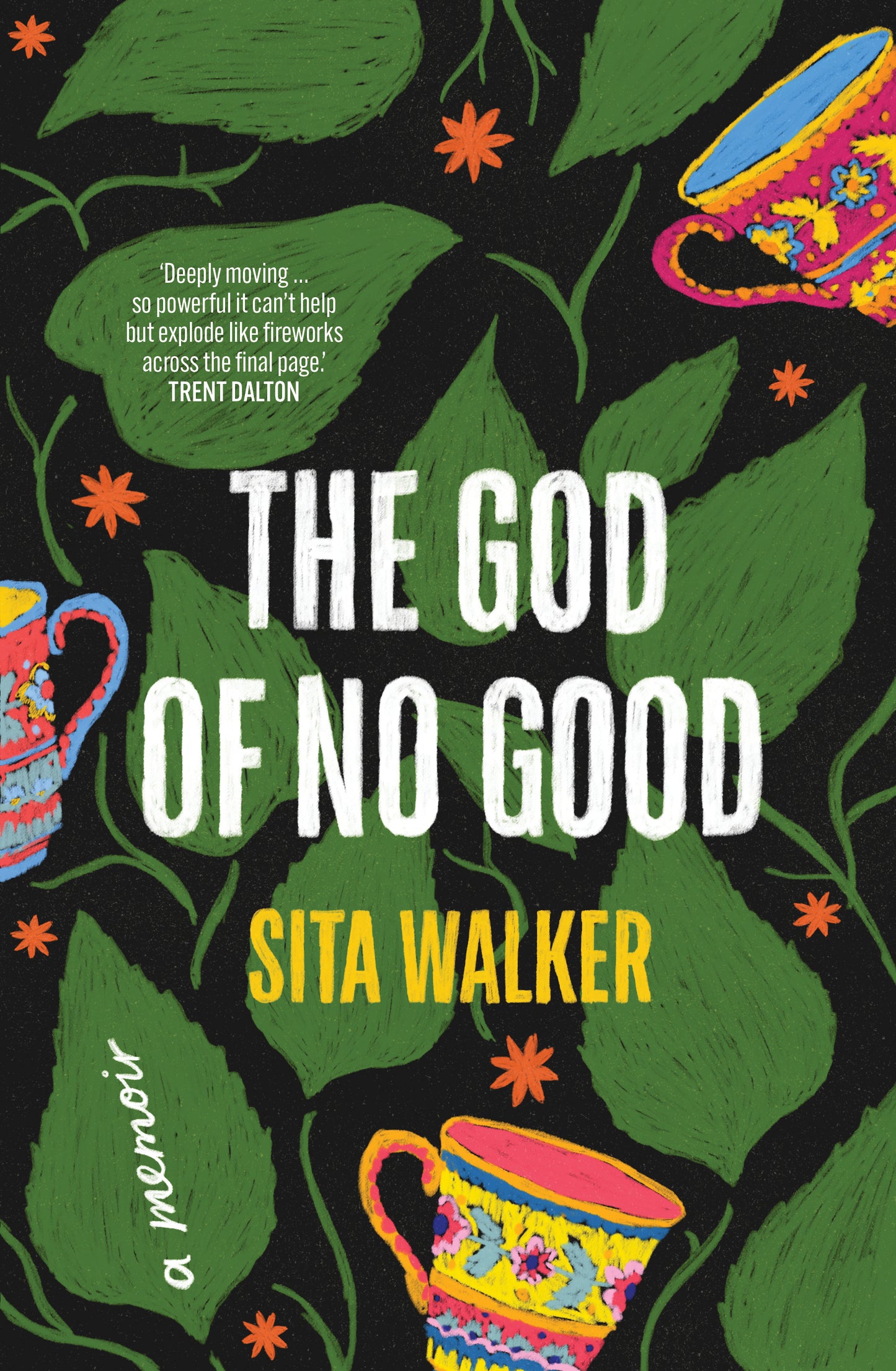Sita Walker
God of No Good
God of No Good
Couldn't load pickup availability
Anne's Review
Gorgeous intergenerational memoir. Funny in parts and moving in others. I know a lot more about the gentle Bahai Faith into the bargain!
Publishers Reviews
‘Deeply moving … so powerful it can’t help but explode like fireworks across the final page.’ – Trent Dalton
This is not a book about divorce. It’s not a book about God, either. You might think it is a book about goodness and what it means to be a good person, but it isn’t. Like everything else, this is about love.
Sita Walker was raised by five strong matriarchs who taught her to believe in God and to be good. Her grandmother, mother and three aunts believed in their unshakeable Bahá’í faith, in the power of prayer, in sacrifice, in magic, in the healing of turmeric and tea, and the wisdom of dreams.
But as hard as she tries to be good, Sita always suspects that deep down, she isn’t very good at all.
At thirty-five, she hasn’t prayed in years, her dream of true love has died, and along with it, her faith – not that she’s telling her mother, or her aunts. Now, the only way she can fulfill her destiny is to seek out the wisdom of the ones who came before, and truly understand the women who raised her. But will they understand her? Either way, the matriarchy will never be the same again.
Traversing decades and continents – from Iran to India, Sri Lanka to the Czech Republic, Adelaide to the Torres Strait – The God of No Good is a beautifully lyrical and funny intergenerational memoir about six women and how their lives intertwine. Filled with wit and wisdom, it is a story that only Sita Walker could tell, but it will resonate with readers everywhere.
PRAISE FOR THE GOD OF NO GOOD
‘Gestures of love leave the deepest imprint, be it Walker’s grandmother brewing masala chai or plucking a jam-coated chapati from her apron pocket. The God of No Good is a moving debut exploding with heart, warmth and wisdom, for fans of Zadie Smith, Alice Pung and Candice Carty-Williams.’ – Books+Publishing
‘Walker has crafted a beautiful tapestry of stories from the lives of her parents and grandparents as she wrestles with doubt and the Bahà’í religion with which she was raised … Some of her descriptions are so achingly beautiful that I marked the pages to come back to them.’ – Artshub
Share


